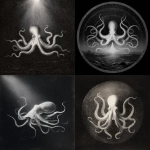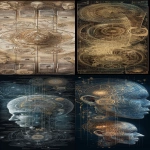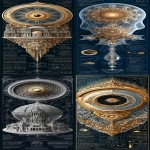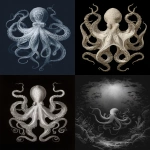Explore the Best AI Image Gallery

The Smart Home Revolution: Exploring the Impact of IoT on Modern Living
The Internet of Things (IoT) has revolutionized the way we interact with our homes. From smart thermostats to advanced security systems, IoT devices are reshaping our everyday experiences, making them more efficient and personalized. In this blog post, we will delve into various aspects of IoT in smart homes, discussing its impact on the creative industry, potential uses, ethical considerations, and future trends.
Understanding IoT in Smart Homes
IoT refers to a network of interconnected devices that communicate and exchange data with one another. In the context of smart homes, these devices can range from kitchen appliances and lighting systems to security cameras and home entertainment systems. This interconnectedness allows users to control and monitor their home environment through a central hub or mobile application.
Impact on the Creative Industry
As the IoT ecosystem continues to expand, it is undoubtedly influencing the creative industry. Designers and developers are now tasked with creating intuitive interfaces that facilitate seamless interaction between users and smart devices. Here are a few aspects of IoT’s impact on creativity:
- Design Innovations: The creative process has become more collaborative, blending technology with artistry. For instance, IoT-enabled home décor can adjust ambient lighting and sound based on occupant mood, requiring designers to think critically about form and function.
- Content Creation: Smart homes can support content creators by offering automated workflows. For instance, smart lighting and camera systems can be pre-set for optimal recording conditions, enhancing the quality of video content.
- User-Centric Design: As consumers become more accustomed to smart technology, the demand for personalized solutions will grow, challenging creatives to think outside standard design paradigms.
Potential Uses of IoT in Smart Homes
The potential applications of IoT technology in smart homes are vast. Some notable uses include:
- Energy Management: Smart thermostats and lighting systems can analyze usage patterns and adjust settings in real-time, significantly reducing energy consumption.
- Security: IoT security systems can provide real-time alerts about potential threats, allowing homeowners to monitor their property remotely.
- Home Automation: Automated appliances can be scheduled to operate at certain times, which enhances convenience and efficiency in daily routines.
Ethical Considerations
As with any technological advancement, IoT in smart homes raises ethical questions that cannot be overlooked:
- Privacy: Continuous data collection raises concerns about user privacy. Homeowners must be vigilant about which data is collected and how it is used.
- Data Security: Smart devices can be vulnerable to cyber-attacks. Ensuring that these devices are secure is essential to protect users from potential breaches.
- Dependency: As technology becomes more embedded in our lives, there is a risk of over-dependence, potentially diminishing important skills and interpersonal connections.
Future Trends
The future of IoT in smart homes is promising. We can expect to see:
- Increased Interoperability: As more manufacturers adopt common standards, different IoT devices will be able to communicate seamlessly, enhancing the user experience.
- AI Integration: The integration of artificial intelligence with IoT devices will lead to even smarter homes that learn and adapt to individual preferences.
- Sustainability: As environmental concerns grow, smart homes will likely incorporate more sustainable technologies, aiming for energy efficiency and reducing carbon footprints.
Ultimately, embracing IoT technology in smart homes can lead to more personalized, efficient, and enjoyable living spaces. However, as we move forward, it is crucial that we address the ethical considerations to ensure a balanced and responsible approach to innovation.
](https://images.ai-img.art/thumbnails/150/0349dd8cf310ed10eba1fc74a6f316b8982c8c2bda7e033d1c1e3dc87d849258.webp)











](https://images.ai-img.art/thumbnails/150/99160160c478b524ba92aa139b5b6aef0be4f3368720294c1dc3fe8fc4cbdd90.webp)











](https://images.ai-img.art/thumbnails/150/ddfcd3cfcd96dd8d48f26fc2a0406d5daa1e8ff5c17fd91de6502c7107ca08ac.webp)




](https://images.ai-img.art/thumbnails/150/6ac2c201a41e2b8724571746d5719f3f25acc52d87a2077f62dcbae44495108e.webp)












](https://images.ai-img.art/thumbnails/150/d912741b1ab16ff573f976b1d875060fed0db91bf03973bae8f91338eb0863a8.webp)




](https://images.ai-img.art/thumbnails/150/c567a1358478083ae41a0cfe6091474ff06e613a84b6c29ca3a26beb2bd76142.webp)

